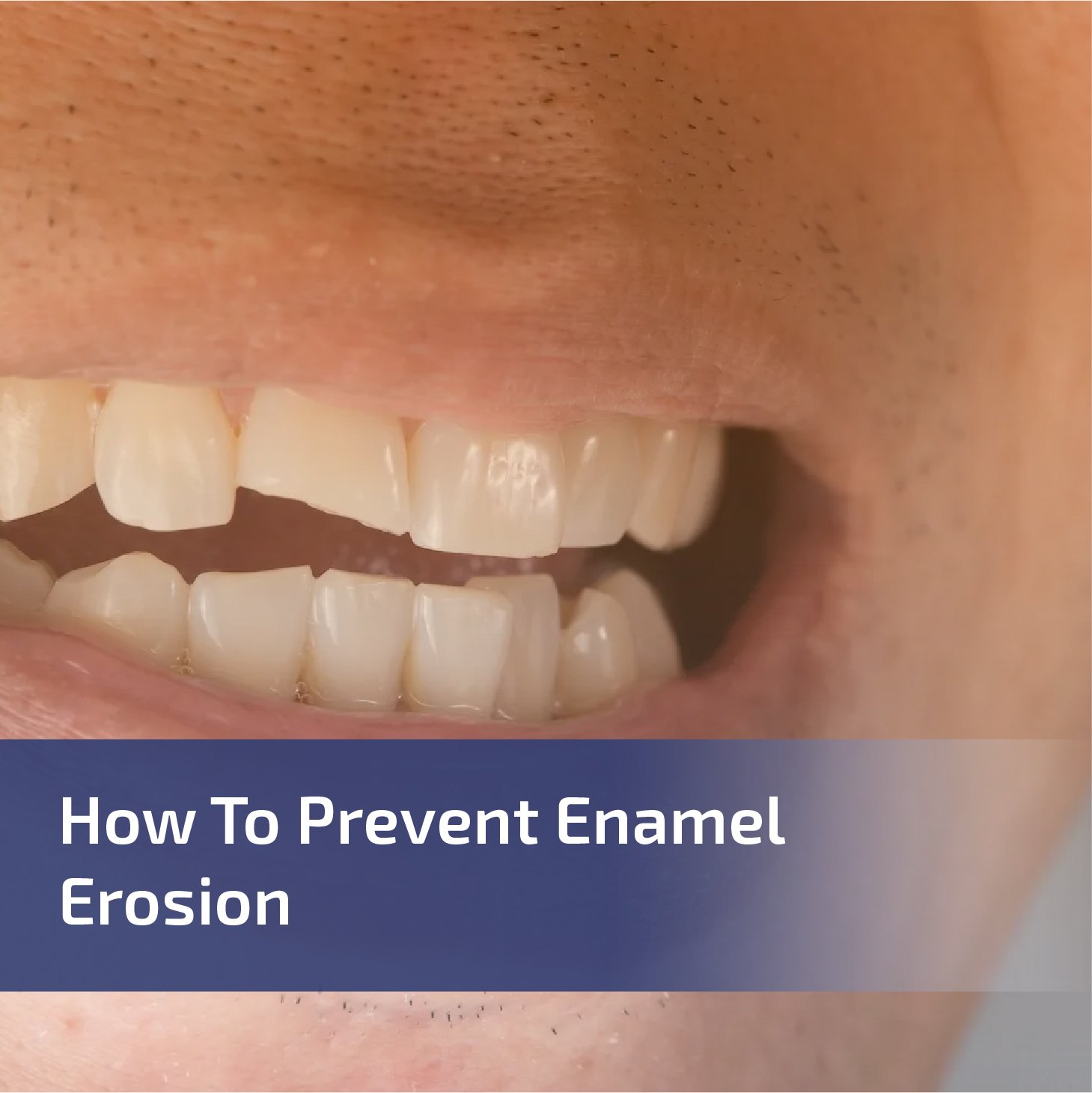
Enamel erosion is a common dental issue that can lead to various oral health problems. The enamel, which is the protective outer layer of our teeth, can gradually wear away due to factors such as acidic foods and drinks, poor oral hygiene, and certain medical conditions.
To maintain strong and healthy teeth, it is essential to prevent enamel erosion. In this article, we will explore effective strategies and techniques to safeguard your enamel and preserve your oral health.
What is Enamel Erosion?
Enamel erosion refers to the gradual loss of the outer layer of the teeth, known as enamel. Enamel is a hard substance that protects the sensitive inner layers of the teeth from damage and decay. When the enamel erodes, it exposes the underlying dentin, making the teeth more susceptible to sensitivity, cavities, and other dental problems.
Why is Enamel Important?
Enamel plays a crucial role in maintaining the health and integrity of our teeth. It acts as a shield, protecting the underlying layers from harmful bacteria, acids, and physical wear. Additionally, enamel contributes to the aesthetics of our smile, as it is the outermost layer that gives our teeth their white and glossy appearance.
Factors Contributing to Enamel Erosion
Enamel erosion refers to the gradual loss of the hard, outermost layer of the teeth. The enamel acts as a protective shield for our teeth and once eroded, it doesn’t regenerate. Here’s a detailed look at those factors:
1. Dietary Habits:
Acidic Foods and Beverages: Consuming foods and drinks like citrus fruits, carbonated sodas, and certain yogurts can expose teeth to acids that weaken enamel.
Sugary Foods: Bacteria in the mouth feed on sugars, producing acids as a byproduct, which can then erode the enamel.
2. Brushing Techniques:
Over-brushing: Brushing too hard or using a hard-bristled toothbrush can wear away the enamel.
Immediate Brushing Post Acidic Intake: Brushing immediately after consuming acidic foods or drinks can further damage the softened enamel.
3. Gastrointestinal Issues:
Conditions like acid reflux or bulimia result in stomach acid reaching the mouth, which can erode the enamel.
4. Bruxism (Teeth Grinding):
Grinding or clenching teeth, especially during sleep, exerts excessive force on the teeth, leading to enamel wear.
5. Environmental Factors:
Dry Mouth: A lack of saliva, which acts as a neutralizer for acids in the mouth, can increase the risk of enamel erosion.
Friction: Constant rubbing or friction, such as improper alignment of teeth, can result in wear.
Abrasive Toothpaste: Some toothpaste with abrasive particles might contribute to enamel wear if used frequently.
6. Medications:
Certain drugs, particularly aspirin and antihistamines, can be acidic in nature and thus pose a risk to enamel.
7. Genetics:
Some individuals might be genetically predisposed to have softer enamel, making it more susceptible to erosion.
How to Prevent Enamel Erosion: Practical Tips and Strategies
Now that we understand the importance of enamel and the factors that can lead to its erosion, let’s explore effective ways to prevent enamel erosion and maintain optimal oral health.
1. Maintain Good Oral Hygiene
Brushing your teeth at least twice a day with a soft-bristled toothbrush and fluoride toothpaste is essential for preventing enamel erosion. Additionally, flossing daily helps remove plaque and food particles from between the teeth, reducing the risk of enamel damage.
2. Limit Acidic Foods and Drinks
While it may be challenging to completely eliminate acidic foods and drinks from your diet, it is crucial to limit their consumption. Opt for healthier alternatives and rinse your mouth with water after consuming acidic substances to minimize their contact with the teeth.
3. Use a Straw
When drinking acidic beverages like fruit juices or soda, using a straw can help reduce direct contact between the liquid and your teeth. This simple technique can significantly minimize the risk of enamel erosion.
4. Rinse with Fluoride Mouthwash
Rinsing your mouth with a fluoride mouthwash after brushing can provide an extra layer of protection for your enamel. Fluoride strengthens the teeth and helps repair early signs of enamel erosion.
5. Stay Hydrated
Drinking plenty of water throughout the day helps maintain a healthy balance of saliva in the mouth. Saliva plays a vital role in neutralizing acids and protecting the teeth from enamel erosion. Stay hydrated to promote optimal oral health.
6. Avoid Teeth Grinding
If you have a habit of grinding or clenching your teeth, known as bruxism, it is important to address it. Speak with your dentist about potential solutions such as a mouthguard or relaxation techniques to prevent enamel erosion caused by bruxism.
7. Be Mindful of Medications
If you are taking medications that may contribute to enamel erosion, consult with your healthcare provider. They may be able to offer alternatives or suggest additional preventive measures to protect your enamel.
Conclusion
Protecting your enamel is vital for maintaining strong and healthy teeth. By following the preventive measures outlined in this article, such as practicing good oral hygiene, limiting acidic foods and drinks, and visiting your dentist regularly, you can effectively prevent enamel erosion and enjoy a lifetime of optimal oral health. Remember, prevention is always better than cure when it comes to enamel erosion. Take care of your teeth and prioritize your oral health to preserve your beautiful smile for years to come.